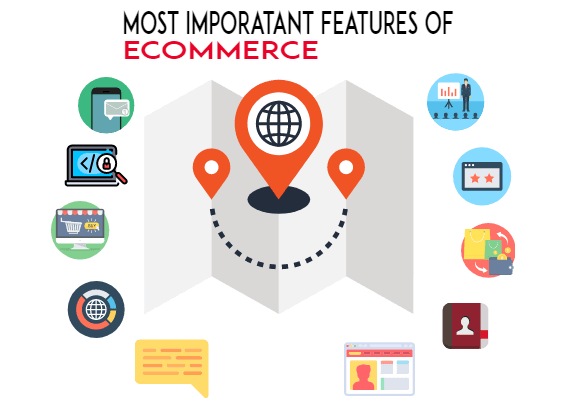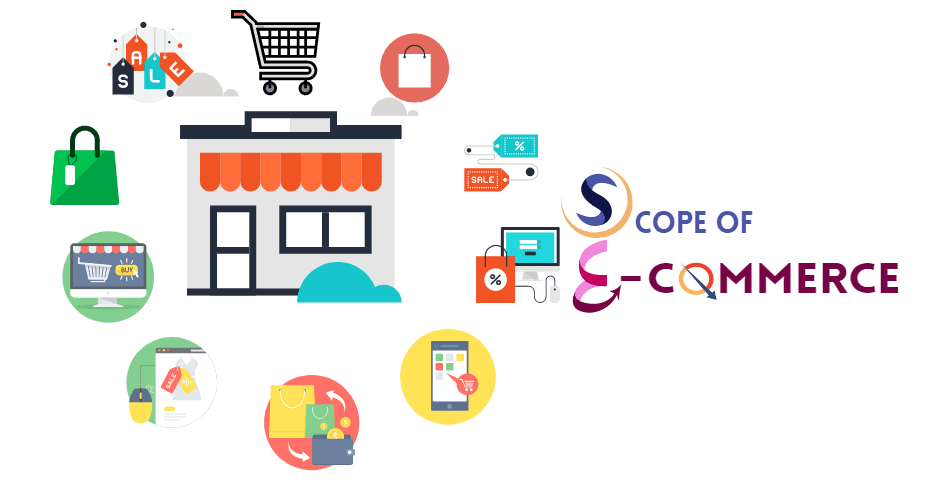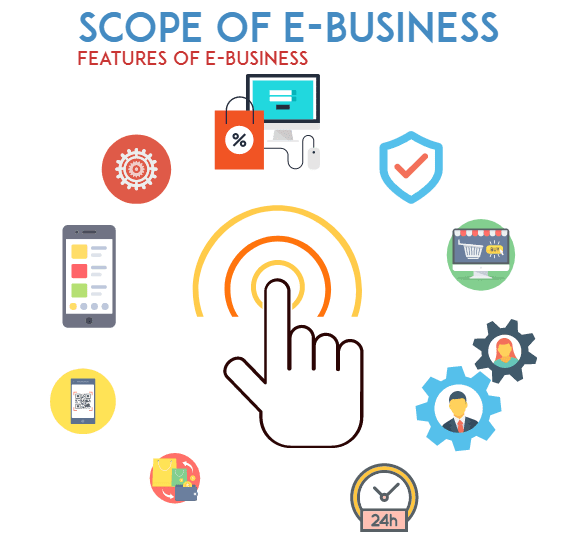The enterprise platform is a comprehensive set of tools and applications that businesses use to organize their operations.
It’s a critical piece of infrastructure, and it needs to be able to interact with the various vendors that businesses rely on to provide the services they need.
In this article, we’ll look at some of the different interactions that take place between the Which Process of The Enterprise Platform interacts With Vendors?
Overview of The Enterprise Platform
The enterprise platform interacts with vendors in a variety of ways to manage and execute business processes.

⦿ Some of The Most Common Methods Include:
- An enterprise platform can use APIs to connect to various third-party software providers.
- The platform can also use integrations with other systems, such as accounting or finance software, to automate and streamline business processes.
- Finally, the platform can provide reporting and analytics tools that allow managers to monitor performance and identify trends.
The Vendor Relationship Lifecycle
The Vendor Relationship Lifecycle describes the process by which an enterprise platform interacts with vendors.
Vendors must be registered with the platform and approved by the platform administrators.
Once registered, vendors can list their products and services for sale.
Vendors can also add new products and services to their listings, or modify existing listings.
Vendors can also manage their accounts and settings, as well as receive customer feedback.
The Vendor Management Platform
The vendor management platform is the backbone of enterprise software procurement.
- It helps organizations manage and track their supplier relationships, and it automates the procurement process.
- The vendor management platform enables organizations to automate their procurement process by creating a central repository for supplier information, tracking supplier performance, and managing supplier relationships.
- The platform also provides an overview of supplier capabilities and performance, helping organizations make informed decisions about supplier acquisition.
- The vendor management platform is a collaborative environment that allows suppliers to submit proposals, access information on customer requests, view detailed account histories, and manage supplier contracts.
- The platform also features a dispute resolution module that helps resolve disputes between suppliers and customers.
Vendor Management in The Enterprise Platform
When it comes to managing vendor relationships within an enterprise, there are a few different processes that need to be followed.

Some of these processes are vendor management, procurement, and contract administration.
In this blog post, we will discuss vendor management in the enterprise platform and how it interacts with the other processes.
| ‣ Vendor Management in the Enterprise Platform |
- Vendor management is a process that is used to keep track of all of the vendors that are involved with an organization.
- This process helps to ensure that all of the vendors that are working with the company are following the proper procedures and guidelines.
- It also helps to ensure that any problems that may arise between these vendors are resolved quickly and efficiently.
- One of the main benefits of using a platform like an enterprise platform is that it makes managing vendor relationships much easier.
- This is because these platforms provide comprehensive information about all of the vendors that are involved with an organization.
- This information can be accessed from anywhere in the world, which makes it very convenient for managers to use.
- Another benefit of using a platform like an enterprise platform is that it can help to streamline the procurement process.
- This is because it can help managers to find qualified vendors quickly and easily.
- It can also help to ensure that all of the necessary paperwork is completed properly.
- Overall, using a platform like an enterprise platform is a great way to manage vendor relationships effectively.
Vendor Relationship Governance
In order to effectively manage vendor relationships, enterprise platforms must have robust governance mechanisms in place.
Processes that interact with vendors, such as procurement and contract management, should be governed by specific processes and procedures that are well known and understood by all involved.
Vendor management processes should also be regularly reviewed and updated to ensure they are effective and aligned with the company’s strategic objectives.
What is A Vendor Relationship Management Platform?
A vendor relationship management platform (VRMP) is a software application that helps organizations manage their relationships with vendors.
It can help companies negotiate and execute contracts, track supplier performance, and monitor supplier compliance.
VRMPs can also automate the procurement process, tracking bids and reviews from multiple suppliers.
Which Process of The Enterprise Platform Interacts With Vendors?
When designing an enterprise platform, developers must take into account how the platform interacts with vendors.

- This process can involve Which Process of The Enterprise Platform interacts With Vendors three main components: the platform architecture, the development process, and the management process.
- The platform architecture involves designing the overall structure of the platform and deciding how it will interact with other systems.
- The development process involves creating the tools and processes needed to create and manage applications on the platform.
- The management process involves monitoring and managing vendor relationships.
- A good platform architecture will allow for easy integration of new vendors and improved efficiency across the entire system.
- A development process that is well organized and standardized will make it easier for developers to create applications on the platform.
- And a management process that is responsive to changes in the marketplace will ensure that vendors are treated fairly and that customer needs are always taken into account.
The Supplier Relationship Management Platform
The supplier relationship management platform allows enterprises to manage their supplier relationships more efficiently and effectively.
By automating communication and tracking, the platform helps to ensure that suppliers are meeting all required specifications while reducing the risk of any potential disruptions.
Additionally, the platform can also help to streamline the procurement process by providing a single point of access for all buyers and sellers in an organization.
Interaction between an Enterprise Platform and Vendors
Enterprise platforms are a key component of an organization’s software infrastructure.
They provide a unified way for organizations to manage their software applications and data and allow users to access the same set of applications and data from multiple locations.
- An enterprise platform interacts with vendors to provide the necessary functionality and services.
- Vendors provide the enterprise platform with the necessary software applications, databases, and other supporting technologies.
- The enterprise platform then uses this information to provide a unified interface for users.
- By using an enterprise platform, organizations can reduce the time required to develop and deploy new applications, as well as manage their software infrastructure more effectively.
Why Use a Vendor Relationship Management Platform?
As enterprises continue to grow and expand their reach, the need for more efficient and effective vendor relationships arises.

By using a vendor relationship management platform, businesses can improve the communication and coordination between their vendors and themselves, leading to increased efficiency and reduced costs.
⦿ Here Are Five Reasons Why using a Vendor Relationship Management Platform is Beneficial:
1. Simplifies Vendor Communication
- A vendor relationship management platform helps businesses streamline their interactions with their vendors by automating many of the process required for coordination.
- This includes tracking product orders, coordinating delivery schedules, and managing communications between all parties involved in the transaction.
- By automating these processes, businesses can focus on their core business operations while the platform takes care of the logistics behind providing products or services.
2. Increases Coordination Efficiency
- When multiple parties are involved in a transaction, coordination can be difficult and time-consuming.
- A vendor relationship management platform helps businesses efficiently communicate with their vendors by tracking all relevant information and sharing it in a timely manner.
- This allows both sides to make informed decisions regarding product orders, delivery times, and other aspects of the transaction.
- As a result, transactions are typically completed faster and with less inconvenience on both sides.
3. Helps AvoidPotential Problems
- A vendor relationship management platform can help businesses to identify potential problems with their vendors before they become any larger.
- By monitoring communication channels and tracking the performance of vendors, businesses can identify any issues early on and take appropriate action.
- This helps to prevent disputes from arising and allows for a smooth and uninterrupted transaction process.
4. Provides Insights Into Vendor Performance
- A vendor relationship management platform can also provide valuable insights into the performance of your vendors.
- By tracking all relevant information, such as product sales, customer feedback, and delivery times, businesses can gain a complete understanding of how their vendors are performing.
- This enables them to make better-informed decisions about future dealings with the same vendor, as well as evaluate other potential vendors.
5. Reduces Costs and Increases Efficiency
- A vendor relationship management platform can save businesses time and money by automating many of the tedious processes involved in coordinating transactions with their vendors.
- This ensures that business operations remain focused on their key priorities while the platform takes care of all the behind-the-scenes work required to get products or services delivered on time.
- As a result, businesses can often achieve greater efficiency and cost savings when working with their preferred vendors through a vendor relationship management platform.
How to Manage Vendors With a Vendor Relationship Management Platform?
One of the most important processes for an organization is managing its vendors.

In order to effectively do this, an organization needs a vendor relationship management platform (VRMP).
This platform will help the organization track and manage all of its vendor relationships.
One of the most important aspects of a VRMP is its ability to interact with vendors.
This interaction can take many different forms, including tracking orders, invoicing, and receiving feedback. Below we will discuss how a VRMP can interact with vendors and what benefits this can have for an organization.
When an organization interacts with its vendors, it needs to keep several things in mind.
- First, the organization needs to make sure that it is communicating with the right vendors.
- Second, it needs to make sure that all information is being sent properly and that it is being received in a timely manner.
- Third, the organization needs to be able to track orders and invoices so that it can determine whether or not they are accurate.
- Fourth, feedback from the vendors needs to be responded to in a timely manner so that the problem can be fixed.
- Finally, if there are any problems with a vendor relationship, the VRMP needs to be able to help resolve them quickly.
FAQ {Frequently Asked Question}
Why Use a Vendor Relationship Management Platform?
As enterprises continue to grow and expand their reach, the need for more efficient and effective vendor relationships arises.
Which Process of The Enterprise Platform Interacts With Vendors?
When designing an enterprise platform, developers must take into account how the platform interacts with vendors.
- This process can involve three main components: the platform architecture, the development process, and the management process.
- The platform architecture involves designing the overall structure of the platform and deciding how it will interact with other systems.
- The development process involves creating the tools and processes needed to create and manage applications on the platform.
- The management process involves monitoring and managing vendor relationships.
Which Process of The Enterprise Platform Interacts With Vendors?
When designing an enterprise platform, developers must take into account how the platform interacts with vendors.
- This process can involve three main components: the platform architecture, the development process, and the management process.
- The platform architecture involves designing the overall structure of the platform and deciding how it will interact with other systems.
- The development process involves creating the tools and processes needed to create and manage applications on the platform.
- The management process involves monitoring and managing vendor relationships.
1 Related Term
- Economists Are a Difficult Lot To Please And AreWhat Underlying Concept is Edge Computing Based on?
- How Can Blockchain Be used To Support Sustainable Business Practices?
- What is The Benefit of Using Digital Data?
- What is The Capacity For Emergency Management And Response Personnel?
- When Advertising Using Search Engine Marketing Sem You Only Pay?
- An Important Feature of Emergency Operation Plans is That They
- What is The initial Function of A Marketing information System is?
- Which of The Following is Not a Function of Insurance?
2 Conclusion For Which Process of The Enterprise Platform interacts With Vendors
In order to be successful with enterprise platform deployment, it’s important to understand how the various processes in your organization interact with your vendors.
This article provides an overview of each process and explains how they impact vendor selection.
By understanding the relationships between your processes and your vendors, you can make better decisions when selecting a platform and ensure that all stakeholders are aligned with a common goal.
‣ I have given you information about Which Process of The Enterprise Platform interacts With Vendors You must have got the information. So share your suggestions with us.
















